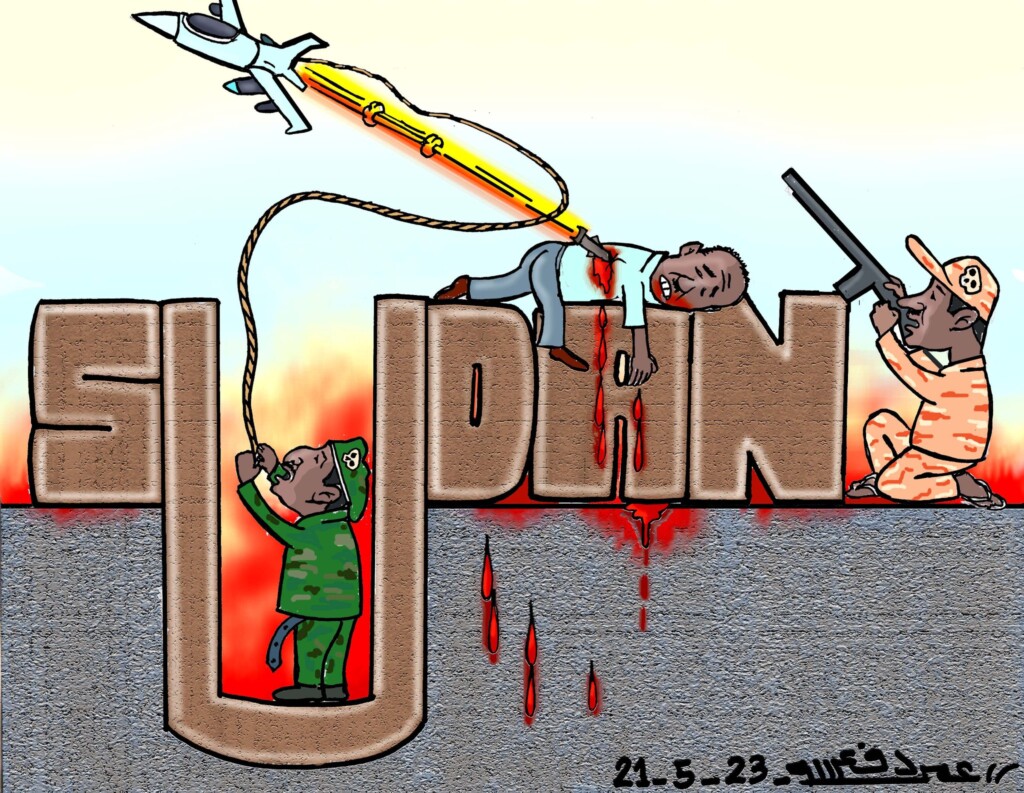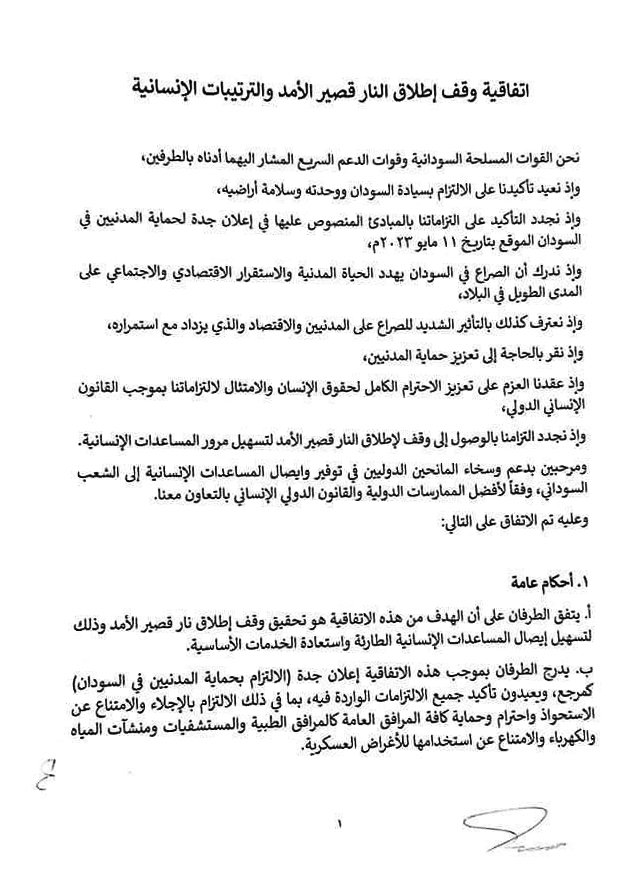Heavy shelling in Sudan capital hours before onset of humanitarian truce

Cartoon by Omar Dafallah (RD)
KHARTOUM / OMDURMAN / KHARTOUM BAHRI –
Large parts of the Sudan capital Khartoum, and neighbouring Omdurman and Khartoum north (Khartoum Bahri) witnessed heavy bombardments this morning, just hours before a short-term truce, designed to facilitate humanitarian response to the current conflict, is due to come into force. Representatives of the warring Sudanese Armed Forces (SAF) and the paramilitary Rapid Support Forces (RSF) signed an agreement on a seven-day ceasefire and humanitarian arrangements in Jeddah in Saudi Arabia on Saturday, which becomes effective at 21:45 (Khartoum time GMT+2) this evening.
On signing the new agreement, both parties have conveyed to the Saudi and US facilitators their commitment “not to seek military advantage during the 48-hour notification period after signing the agreement and prior to the start of the ceasefire”.
The agreement provided for refraining from air attacks, shelling with heavy weapons, and firing at any civilian aircraft or humanitarian aid carrier. The agreement also prohibited the use of civilians as human shields and the occupation of hospitals and basic infrastructure facilities, including water, electricity and fuel facilities.
The agreement stipulated preventing the occupation of new sites, and stopping the movement of forces, weapons or resources, and called on both sides not to target civilian infrastructure or population centres.
The agreement emphasised the prevention of espionage, recruitment, arrests, and hostage-taking, as well as looting and looting, and restrictions on the movement of civilians.
US-Saudi monitoring
The Jeddah agreement provides for the formation of a committee to monitor and coordinate the short-term ceasefire and humanitarian aid, consisting of 12 members from both parties to the agreement, as well the US and Saudi facilitators.
The Monitoring and Coordination Committee will maintain regular and direct contact with the SAF and RSF commands, and designated focal points on all coordination work necessary to implement the short-term ceasefire and humanitarian aid.
The Committee will receive communications from the two parties to the conflict, the two facilitating parties, the United Nations and the International Red Cross regarding violations of the short-term ceasefire.









 and then
and then